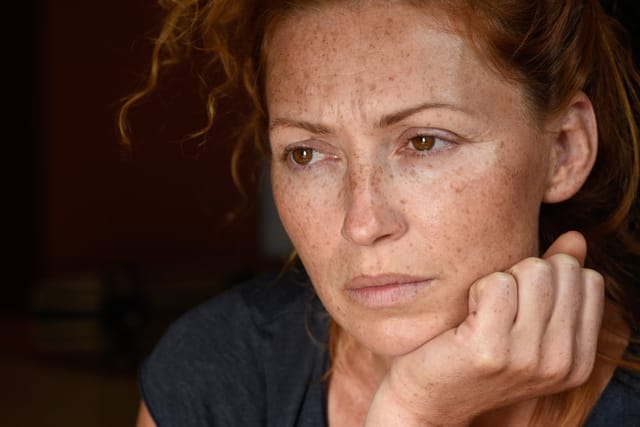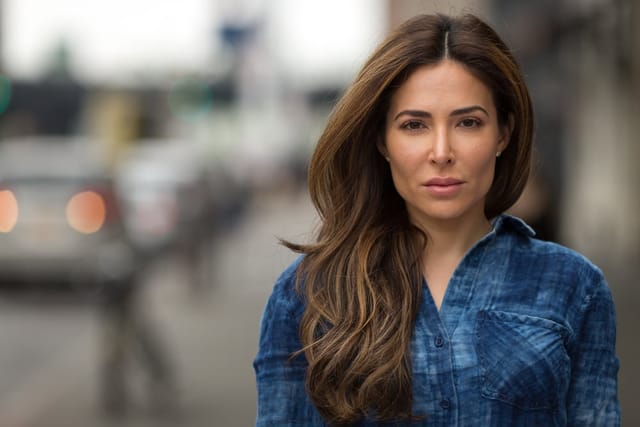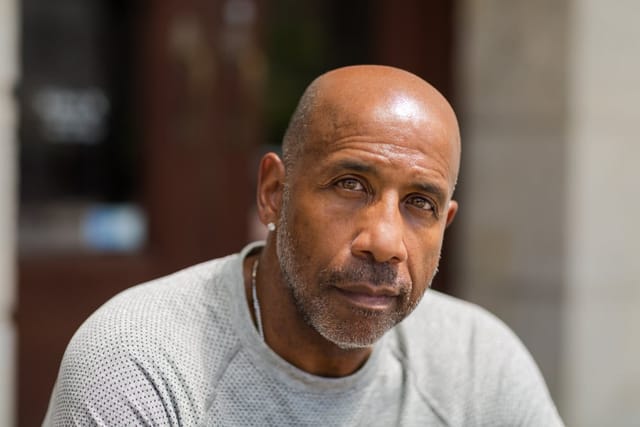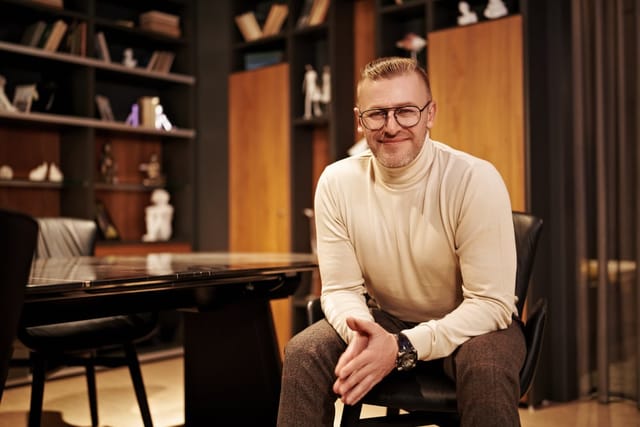Let’s be real; being a parent is a wild ride.

We all do our best, hoping that love is enough to see our kids through the hard parts. But sometimes, things fall apart, and your adult children decide they can no longer have you in their lives. It’s heartbreaking and confusing, and you probably have a ton of unanswered questions. Here are some reasons why adult children choose to distance themselves and what you might do.
1. You never quite apologized for the things that hurt them.

Childhood hurts linger, even if they seem small from your perspective. A half-hearted “sorry” or an explanation that minimizes their feelings doesn’t erase the impact. Maybe what they need is for you to see how your actions truly made them feel and take full ownership of the hurt you caused, even if those weren’t your intentions. Genuine apologies help heal relationships and hurt feelings, the American Psychological Association (APA) notes. Without them, you can never truly make amends.
You may also like: 15 Things People Who Don’t Put Up With Anyone’s BS Have In Common
2. You still treat them like they’re kids.

Adult children need space to make their own choices and screw up a little. It’s part of figuring out who they are. Constantly telling them what to do, offering unsolicited advice, or trying to “fix” their lives can feel suffocating. They want to be seen as capable adults, even when they stumble along the way.
Don’t miss out – follow Bolde for exclusive content daily
3. Boundaries? Yeah, you don’t seem to get those.

Overstepping boundaries is a big way to drive adult children away, as MindBodyGreen points out. Popping in unannounced, guilt-tripping them into spending time with you, or treating them like your personal therapist all signal a lack of respect. Remember, healthy relationships are built on mutual boundaries, even between parents and their grown kids.
You may also like: These 16 Types of People Are Red Flags In Disguise
4. You constantly compare them to other people.

Whether it’s siblings, cousins, or the random kid down the street, comparisons sting! This makes them feel like they’re always falling short, like they’ll never be good enough. What your adult child craves is to feel celebrated for their unique talents and who they are as a person, not who you wish they were.
Don’t miss out – follow Bolde for exclusive content daily
5. You were always emotionally unavailable.

Kids need to feel seen, heard, and understood to develop a secure connection with their parents. If this was missing in childhood, it can cast a long shadow. They may struggle to trust that you’ll be emotionally present now, even if you’re trying. Starting to show up for them emotionally in small but consistent ways can work wonders over time.
You may also like: The Top 10 Reasons Men Break Up With Women, As Told By A Guy
6. You don’t support their choices, even when you don’t fully get them.

Maybe they married someone you disapprove of or chose a career path that seems risky to you. It’s natural to worry, but withholding support sends a hurtful message. Your disapproval feels like withdrawing love, making them pull away to protect themselves. Loving your child means supporting their right to live their own life, even when you’d make different choices.
Don’t miss out – follow Bolde for exclusive content daily
7. Your jokes always land with a sting.

Sometimes a little teasing seems harmless, but those playful jabs can add up over time. Repeated sarcasm or “jokes” that belittle them, even subtly, can seriously harm their self-esteem. They may brush it off on the outside, but those comments hurt, making them feel like you don’t truly respect them or their feelings.
You may also like: 15 Clever Phrases That Instantly Humble an Arrogant Person
8. You make everything about you.

It’s natural to share your own experiences, but there’s a fine line between relating to your child and hijacking the conversation. Do you constantly turn their struggles into your own sob stories? Minimizing their wins by one-upping them with your accomplishments makes them feel invisible and unheard. They need space to share without feeling like your side act.
Don’t miss out – follow Bolde for exclusive content daily
9. You hold grudges tighter than an angry toddler holds a toy.

Everyone slips up sometimes, but holding onto past hurts stops relationships from moving forward. Rehashing old arguments or giving the silent treatment creates a tense atmosphere. Your adult child may feel like nothing they do will ever be good enough, making it hard to have a healthy connection.
You may also like: 15 Types Of People You Should Never Trust In Life
10. “Because I said so” doesn’t fly anymore.

Questioning your authority feels normal, even necessary, for adult children. It’s how they establish their own sense of agency. If you always insist on unquestioning obedience, it makes them feel like kids again, not the capable adults they are. Shifting from rigid control to offering guidance fosters more trust. “Because I said so” is a mode of authoritarian parenting, according to A Fine Parent. It’s no way to raise kids!
Don’t miss out – follow Bolde for exclusive content daily
11. You’re always the victim, never the one who messed up.

Nobody’s perfect, parents included. Refusing to own your mistakes makes it impossible to have genuine conversations or repair hurt feelings. It leaves your adult child stuck in a frustrating cycle where nothing ever gets resolved because you’re never at fault. Accountability is key to showing them you’re capable of growth and building a healthy relationship.
You may also like: Things Narcissists Say To Shut You Down When You Confront Them
12. They witnessed you treat your partner poorly and it turned them off.

Kids learn about relationships by watching their parents, for better or worse. Disrespectful or hurtful behavior toward your partner sets a bad example. They worry about repeating unhealthy patterns and don’t want to get caught in a similar situation. If you want them close, they need to see what a healthy partnership looks like.
Don’t miss out – follow Bolde for exclusive content daily
13. They had to be the “parent” growing up, and now they’re just done.

Parentified kids have to shoulder responsibilities way too big for their age. Whether it was taking care of you emotionally, tending to younger siblings, or managing household chaos, it’s exhausting. If they carried burdens meant for adults, they might burn out and need space to heal, even if you weren’t intentionally putting them in that position.
You may also like: Don’t Share These 15 Things With Anyone – They’re Nobody’s Business But Yours
14. Your substance use damaged the relationship beyond repair.

Addiction hurts everyone in its path. Broken promises, unpredictable behavior, and neglect leave deep scars. It erodes trust and makes your adult child wonder if they can ever rely on you. Even if you’re in recovery, it takes time and consistent action to rebuild a relationship after this kind of damage.
Don’t miss out – follow Bolde for exclusive content daily
15. They’ve tried talking to you, but you shut it down.

Maybe they’ve gently brought up issues in the past, but you got defensive or gaslit them. It’s heartbreaking for a child to feel like they can’t express concerns without being dismissed. After a while, they learn that communicating openly with you leads nowhere, so they choose distance instead of more painful conversations.
You may also like: 18 Personality Traits Of An Unhappily Married Man
16. There’s a toxic family member you refuse to cut ties with.

Sometimes, self-preservation means cutting off an entire branch of the family tree to get away from one toxic person. If you insist on keeping that harmful relationship in your life, your adult child might decide they need to create distance from the entire situation for their own well-being.
Don’t miss out – follow Bolde for exclusive content daily
17. Your new partner or spouse is straight-up unkind to them.

Nobody wants to hang around someone who treats them badly, whether it’s overt meanness or subtle digs. If your new partner doesn’t make them feel welcome or respected, avoiding you both becomes the natural choice. They want to feel safe and loved around family, not on edge and undervalued.
You may also like: Evil People: 21 Things They Do & How To Deal With Them
18. They need space to heal, even if you don’t understand why.

Estrangement is often an act of protection. Even if you don’t understand their reasons, your adult child might need distance to process past hurts and figure out how to move forward in a healthy way. Giving them that space, difficult as it may be, respects their need for healing. Focus on your journey, and perhaps there’s a chance for reconciliation down the line.
Enjoy this piece? Give it a like and follow Bolde on MSN for more!


